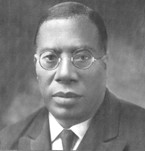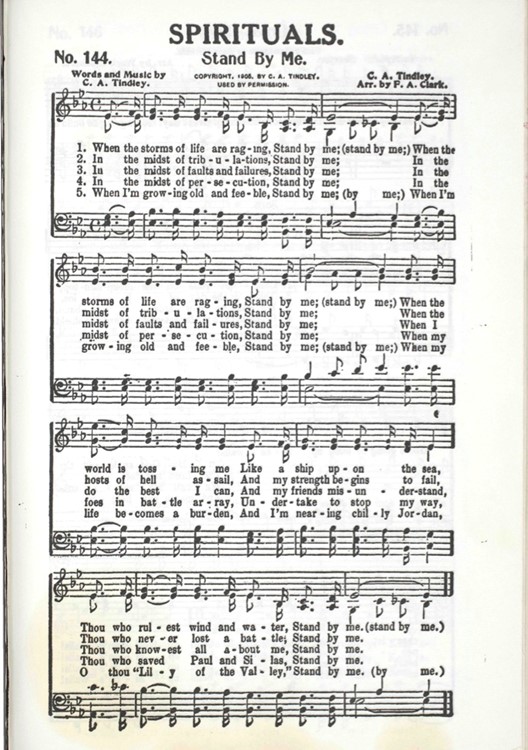
Black Hymnody
With the church as the center of the Black community, the idiom of gospel music began in the late nineteenth and the early twentieth century with Dr. Charles Albert Tindley's hymns A song of praise or adoration to a deity.. Tindley was born to a free mother and an enslaved father. Though he was not formally educated, he taught himself several languages and became a Methodist minister, eventually heading a church in Philadelphia whose membership grew to over three thousand parishioners. He wrote the hymn "I Shall Overcome" that became the inspiration and precursor to the quintessential hymn of the civil rights movement, "We Shall Overcome". His hymns flowed directly out of the reservoir of Negro spirituals A religious song of a kind associated with Black Christians of the southern U.S. and thought to derive from the combination of European hymns and African musical elements by Black slaves., employing the two-part structure of verse and refrain, the trope of call-and-response, and the art of repetition, as practiced by slaves in their invisible churches, praise houses, and various camp meetings.

Charles Albert Tindley
Here, in one Tindley's most poignant hymns, "Stand By Me", (1905) it is in the structure and treatment of the text that sets Tindley among the most prolific of African American or Black hymnody. In this example, we clearly see the two-part structure of the spiritual, with section B starting in the last beat of measure (4):

Stand By Me [ 00:00-00:00 ]
Lyrics
"When the host of hell assail,
And my strength begins to fail,
Thou who never lost a battle,
Stand by me."
Exploring the A section, which starts with an anacrusis, hence why B does the same, the two-bar phrases are accentuated by a repeated petition, "Stand by me." The first of which employs an authentic cadence. However, note the prime form of the phrase does not cadence until the repeated line, during which the dominant 7th to the tonic sets up a climactic leap into the B section. Hence, the treatment of this structure builds to give reason or cause for the plea, to "stand by me." It is clearly understood and presented as the "High Point" of the piece:
Lyrics
"When the world, the host.. when I've done….
Stand By Me
When the storms of life are raging
Stand by me
When the storms of life are raging
Stand by me
When the world is tossing me
Like a ship out on the sea
Thou who rulest wind and water
Stand by me
Leave It There
If the world from you withhold of its silver and its gold,
And you have to get along with meager fare,
Just remember, in His Word, how He feeds the little bird,
Take your burden to the Lord and leave it there.
Leave it there, leave it there,
Take your burden to the Lord and leave it there.
If you trust and never doubt,
He will surely bring you out,
Take your burden to the Lord and leave it there.






